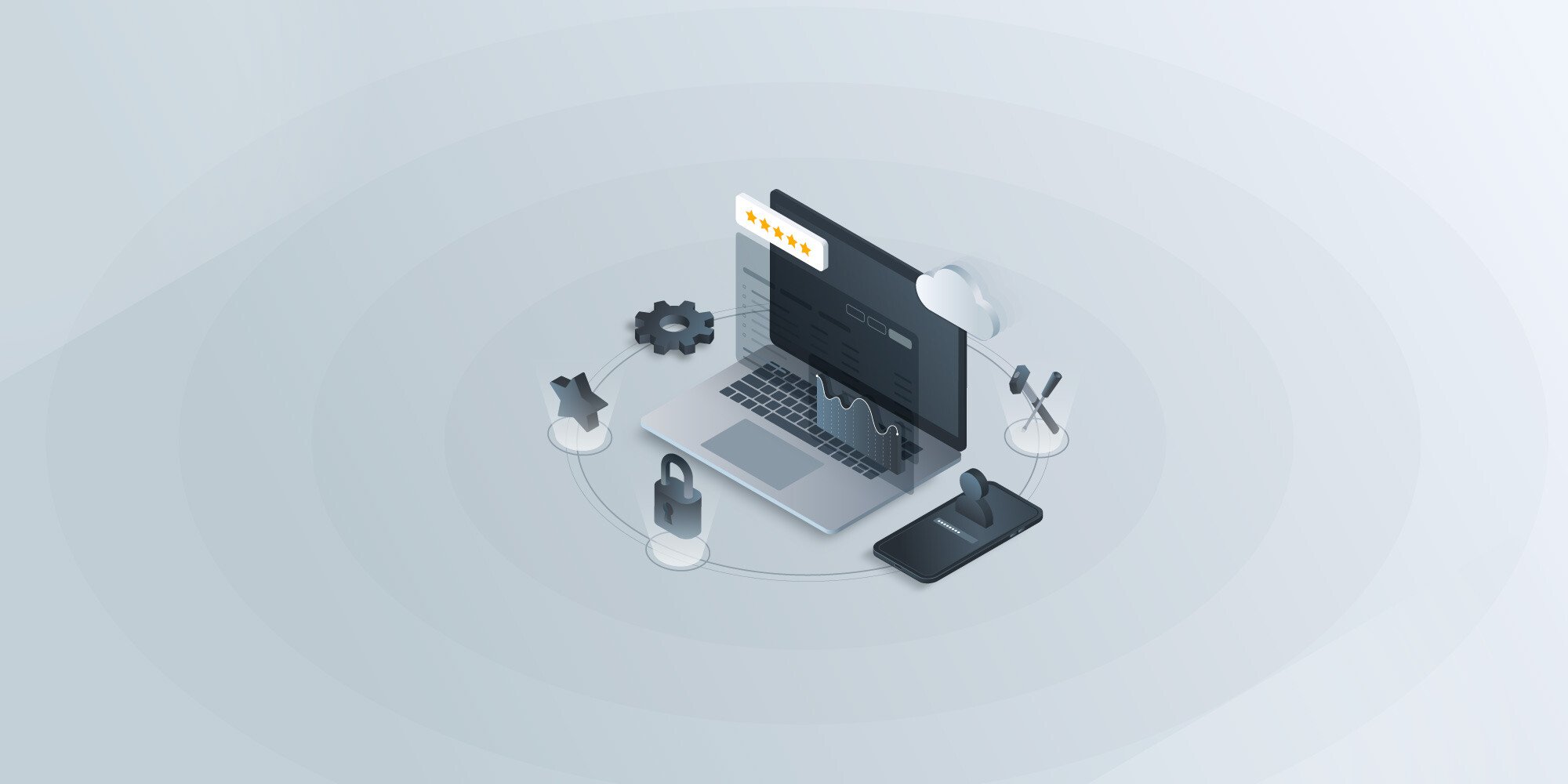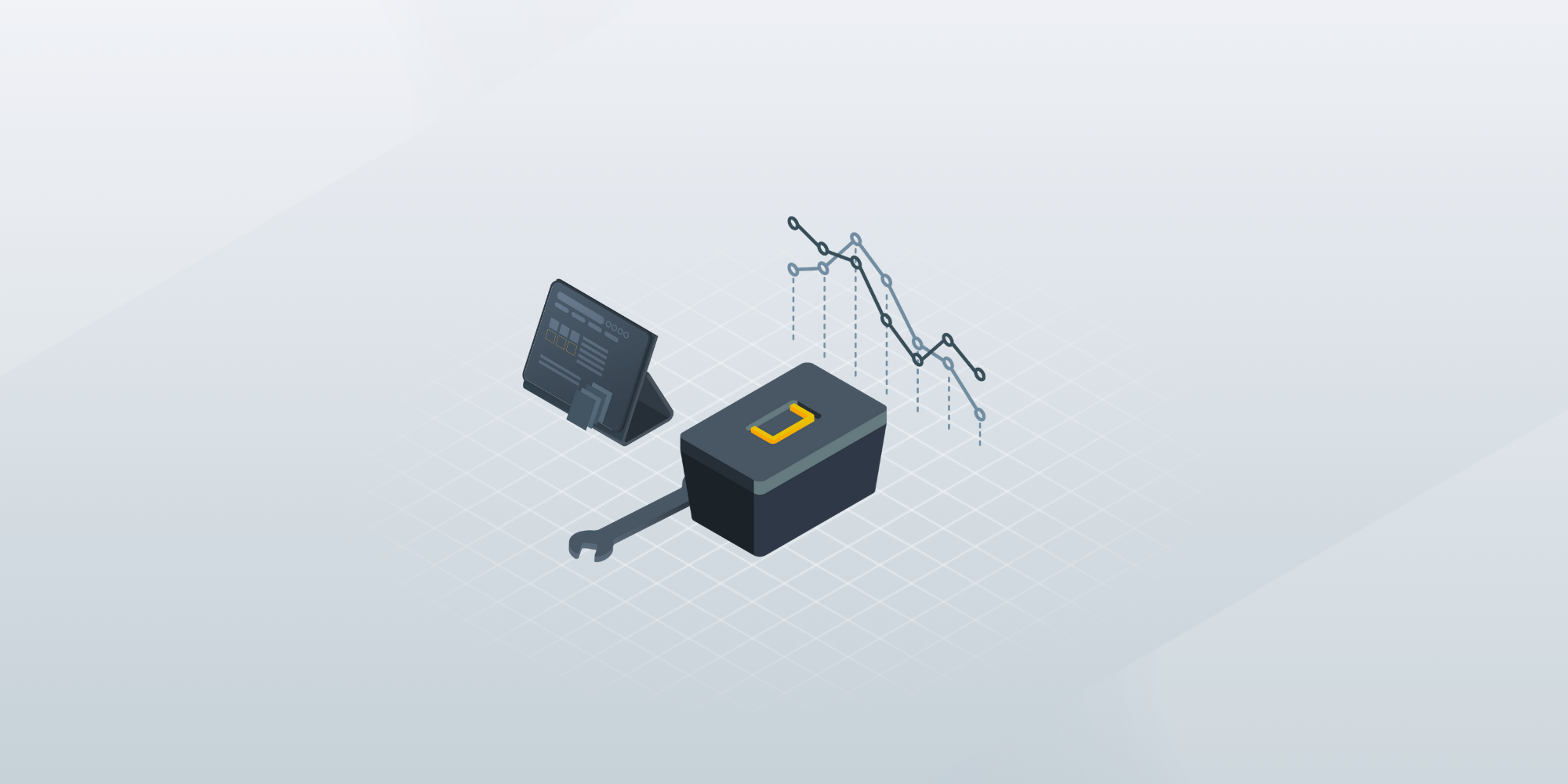Top 9 ManageEngine alternatives for IT asset management in 2026
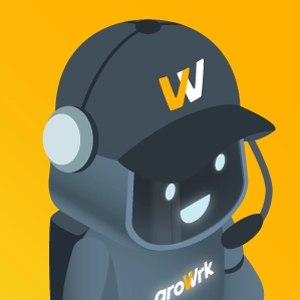 GroWrk Team
GroWrk Team
Effective IT management is vital for modern businesses. As technology advances, enterprises need scalable tools. Monitoring devices and updating operating systems are crucial for compliance, security, and efficiency.
While ManageEngine has been a popular choice for many, the emergence of new players in the market offers a fresh perspective and innovative features that can significantly enhance IT management processes. Evaluating these competitors helps businesses find the best fit for their unique requirements and operational goals.
Are you searching for a ManageEngine alternative? Many organizations face challenges with support quality, complexity, and cost when using ManageEngine. This article explores the top alternatives for 2026 that can streamline your IT asset management, improve efficiency, and better meet your needs.
Key takeaways
-
Organizations increasingly seek ManageEngine alternatives to address challenges such as inconsistent support, complex configuration, and high costs associated with its solutions.
-
Top alternatives for 2026 include GroWrk, Zluri, SolarWinds, and IBM Maximo, each offering unique features for enhanced IT asset management and operational efficiency.
-
When selecting an IT asset management tool, key factors include user-friendliness, customization options, strong security features, and the potential for improved flexibility and cost savings.
What is ManageEngine?
.png?width=600&height=300&name=In-blog%20image%20template%20(15).png)
ManageEngine is a comprehensive solution for managing hardware, software, and cloud assets to control IT resources effectively. The platform simplifies purchase order processes through a structured workflow, making it easier for organizations to manage IT procurement efficiently. Additionally, users can define and attach detailed contracts and rules to manage them effectively, ensuring compliance and accountability.
The mobile application stands out by allowing users to manage and track assets remotely on iOS and Android devices. This functionality benefits organizations with distributed teams or remote workforces by ensuring seamless asset management processes regardless of location. The platform also notifies technicians before contract expirations for proactive management and to reduce compliance risks.
ManageEngine provides a complete asset lifecycle monitoring system, from procurement to disposal. It automatically discovers hardware and software inventory, offering insights into asset history and connections. With about 50 configuration types, it supports root cause analysis and impact monitoring to maintain optimal IT asset performance.
Why switch from ManageEngine?
Despite its robust features, ManageEngine presents several challenges that can impact user experience and hinder the effective management of IT infrastructure. These inefficiencies prompt many businesses to explore alternative solutions:
Inconsistent support quality
One of ManageEngine's primary issues is the inconsistent quality of support, which can lead to frustration and delays in resolving issues. Organizations that rely heavily on timely support to maintain their IT infrastructure may find this inconsistency particularly problematic.
Complex configuration process
The complexity of its configuration process Another significant challenge with ManageEngine is t. Users often find it difficult to navigate the setup and customization options, which can hinder the software's efficient implementation. Customization is crucial for tailoring fields, workflows, and reports to meet unique organizational requirements, and any difficulty in this area can limit the software’s effectiveness.
High costs
The significant costs associated with ManageEngine, including licensing and managing various operating systems, can be an important concern for organizations. These costs can add up quickly, especially for businesses with large IT infrastructures. As a result, many organizations are exploring ManageEngine alternatives that offer more cost-effective solutions without compromising on features or performance.
Limited customization options
ManageEngine may pose challenges with limited customization options, making it difficult for organizations to tailor the software to their specific needs. This limitation can affect the software's adaptability to unique workflows and processes, potentially impacting overall efficiency and effectiveness.
Steep learning curve
The steep learning curve associated with ManageEngine can be a barrier for new users, especially for small businesses or those with limited IT resources. The platform's complexity may require extensive training and onboarding, which can delay the adoption and utilization of its features, ultimately affecting productivity and return on investment.
Leading ManageEngine alternatives
.png?width=600&height=300&name=In-blog%20image%20template%20(16).png)
Due to its drawbacks, many organizations seek ManageEngine alternatives that meet their needs better. Several competitors to ManageEngine are being evaluated for their capabilities in handling IT management tasks, flexibility, and support quality.
The top alternatives to ManageEngine for IT asset management in 2026 include:
-
GroWrk
-
Zluri
-
SolarWinds
-
IBM Maximo
-
ServiceNow
-
BMC Helix
-
Alloy Software
-
Asset Panda
-
Upkeep
Each software solution offers features and capabilities to help organizations manage their technology resources more effectively.
1. GroWrk
GroWrk is a standout solution for managing devices globally across multiple regions. As an end-to-end IT asset management platform, IT teams can easily manage IT assets throughout their lifecycle, from procurement to disposal. Its intuitive dashboard provides complete asset visibility and allows advanced security features, making it an ideal choice for organizations with distributed teams.
Pros
-
Extensive geographical coverage, supporting operations in over 150 countries
-
Transparent pricing model with a la carte options
-
Strong focus on network monitoring, security, and compliance
-
MDM software enrollment and identity management
-
AI-driven support tools for personalized assistance and automatic detection of errors
-
Data-driven insights for informed decision-making
Cons
-
It may not be suitable for smaller organizations due to advanced tools
Pricing
GroWrk is available for a monthly workstation fee with a la carte options. It provides complete asset visibility for free and charges a one-time fee for any order placed, ensuring budget predictability.
2. Zluri
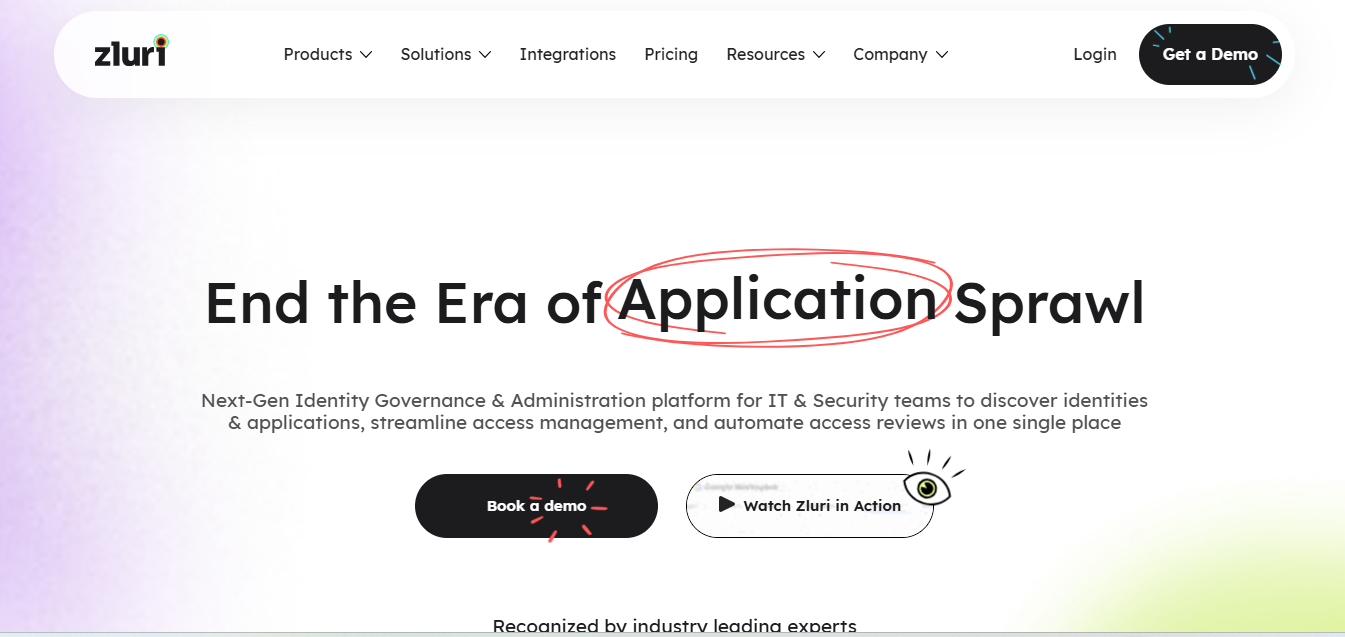
Zluri specializes in discovering and managing SaaS applications, offering organizations visibility into their software landscape. This platform automates the identification of SaaS tools, helping teams track subscriptions and optimize software licenses based on actual usage. Zluri's comprehensive approach enhances resource allocation and compliance.
Pros
-
Automated discovery of all SaaS tools in use
-
Efficient license management based on actual usage
-
Enhances renewal intelligence with notifications
Cons
-
Primarily focused on SaaS applications
-
May require integration with existing systems for full functionality
Pricing
Zluri offers competitive pricing tailored to the organization's size and needs, with options for scaling as the software landscape grows.
3. SolarWinds
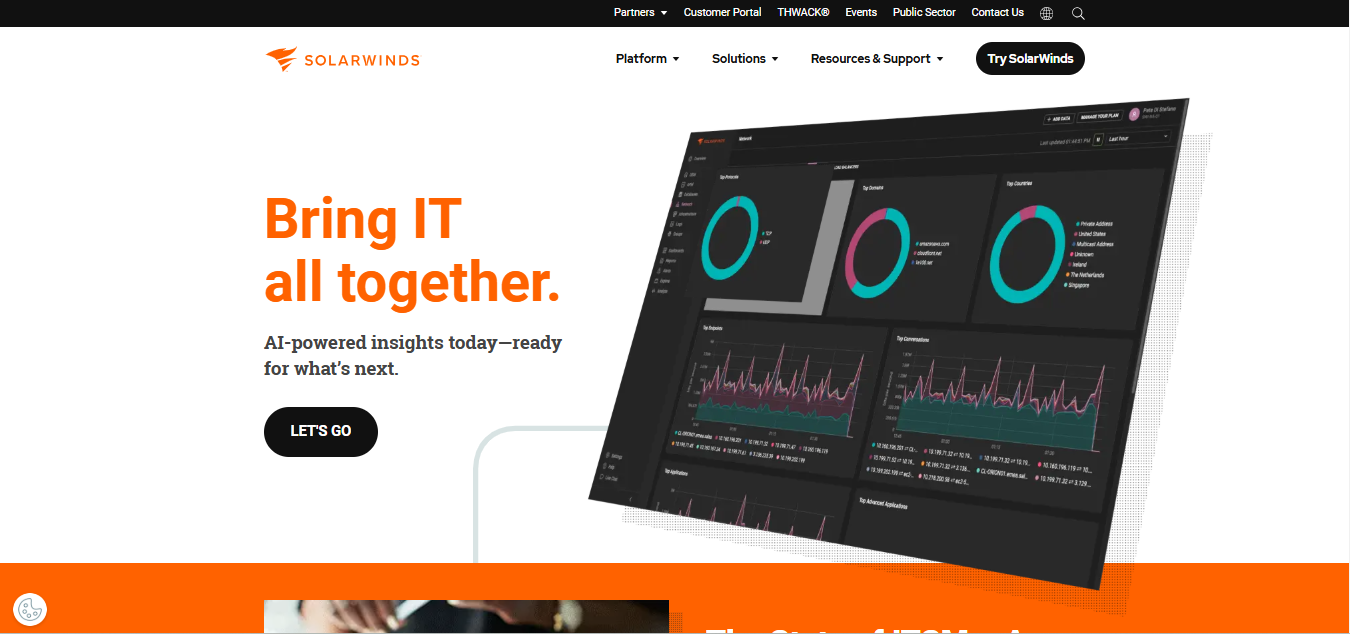
SolarWinds provides efficient tracking, monitoring, and oversight of all technology assets, consolidating critical information into a centralized repository. This centralization offers unmatched transparency into an organization’s assets, facilitating better decision-making and resource management.
SolarWinds' endpoint management features enhance IT efficiency by offering monitoring, patch deployment, and security, helping businesses optimize their internal processes and ensure quick response times from IT support.
Pros
-
Centralized repository for asset information
-
Comprehensive insights into hardware and software assets
-
Streamlined lifecycle management from procurement to disposal
Cons
-
May have a steep learning curve for new users
-
Requires an internet connection for optimal functionality
Pricing
SolarWinds offers flexible pricing plans based on the organization's size and specific asset management needs, ensuring cost-effectiveness.
4. IBM Maximo
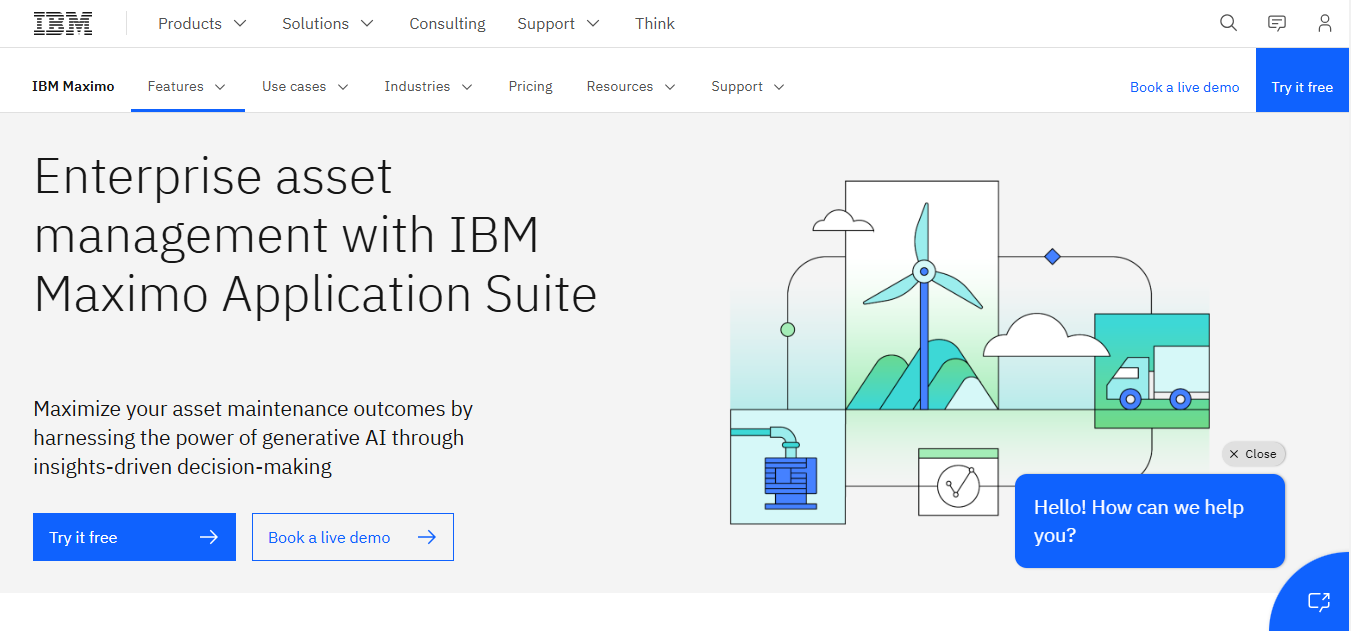
IBM Maximo Asset Management provides comprehensive asset insights, efficient planning, and control, and supports data-driven decision-making. This platform enables seamless management of diverse IT assets from any location, facilitating integration with existing applications.
Pros
-
Real-time insights into hardware and software assets
-
Detailed insights into asset performance and usage
-
Seamless integration with existing systems
Cons
-
May be complex for smaller organizations to implement
-
Requires significant initial setup and customization
Pricing
IBM Maximo offers tiered pricing options to accommodate different organizational needs, with a focus on scalability and comprehensive asset management.
5. ServiceNow
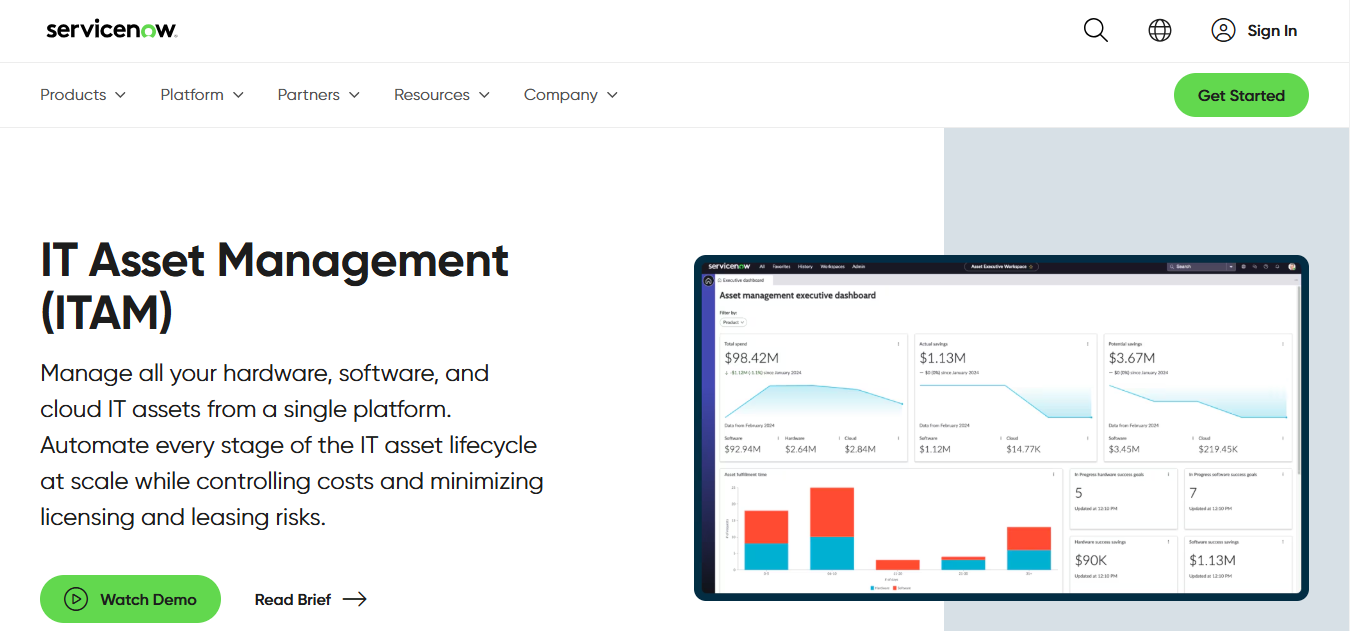
ServiceNow is a leading IT service management platform that offers a comprehensive suite of tools to streamline IT operations. It enables organizations to efficiently manage their IT assets, including hardware and software assets, while ensuring compliance with software licensing agreements.
Pros
-
Automates asset discovery and inventory management across networks
-
Provides detailed insights into software assets and usage for compliance
-
Optimizes asset utilization, reducing waste and unnecessary expenditures
-
Enhances IT service delivery, leading to significant cost savings
Cons
-
May require integration with existing systems for full functionality
-
Can be complex for organizations with limited IT resources
Pricing
ServiceNow offers flexible pricing plans tailored to the organization's size and specific needs, ensuring cost-effectiveness.
6. BMC Helix
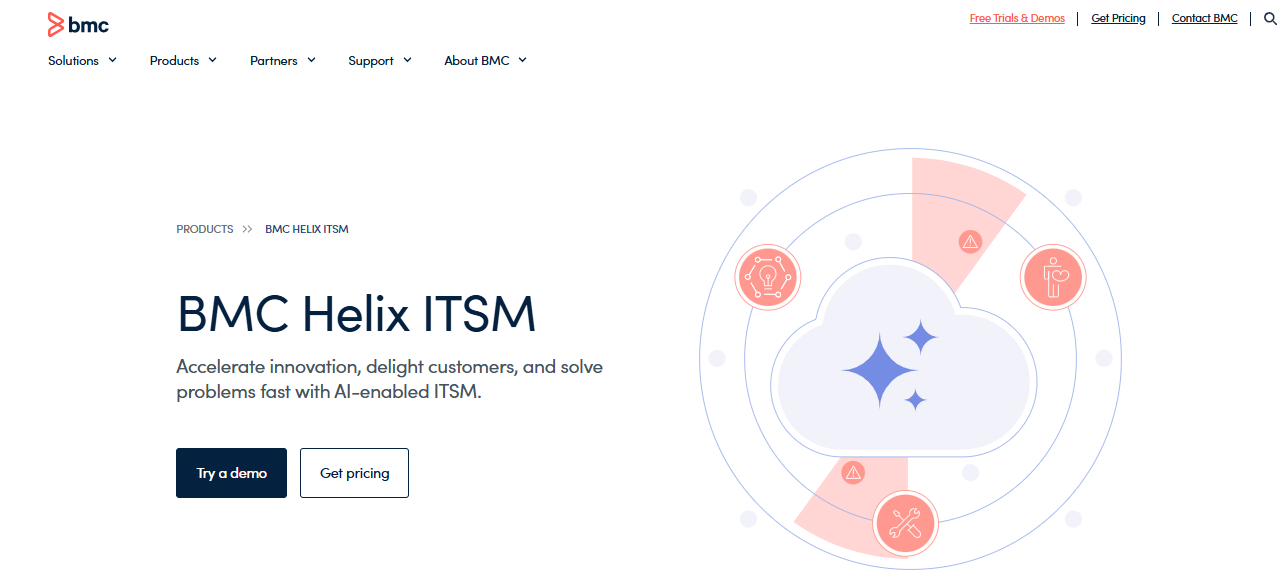
BMC Helix is a cutting-edge IT service management platform that offers intelligent automation capabilities to streamline IT operations. It helps organizations automate routine tasks, improve incident management, and enhance service delivery.
Pros
-
Automates repetitive tasks and workflows, freeing up IT staff
-
Improves incident management and resolution times
-
Enhances service delivery, leading to higher customer satisfaction
-
Reduces costs and improves operational efficiency through automation
Cons
-
May require extensive setup and customization
-
Could be challenging for smaller organizations to implement
Pricing
BMC Helix offers competitive pricing options based on the organization's size and specific IT asset lifecycle automation needs.
7. Alloy Software
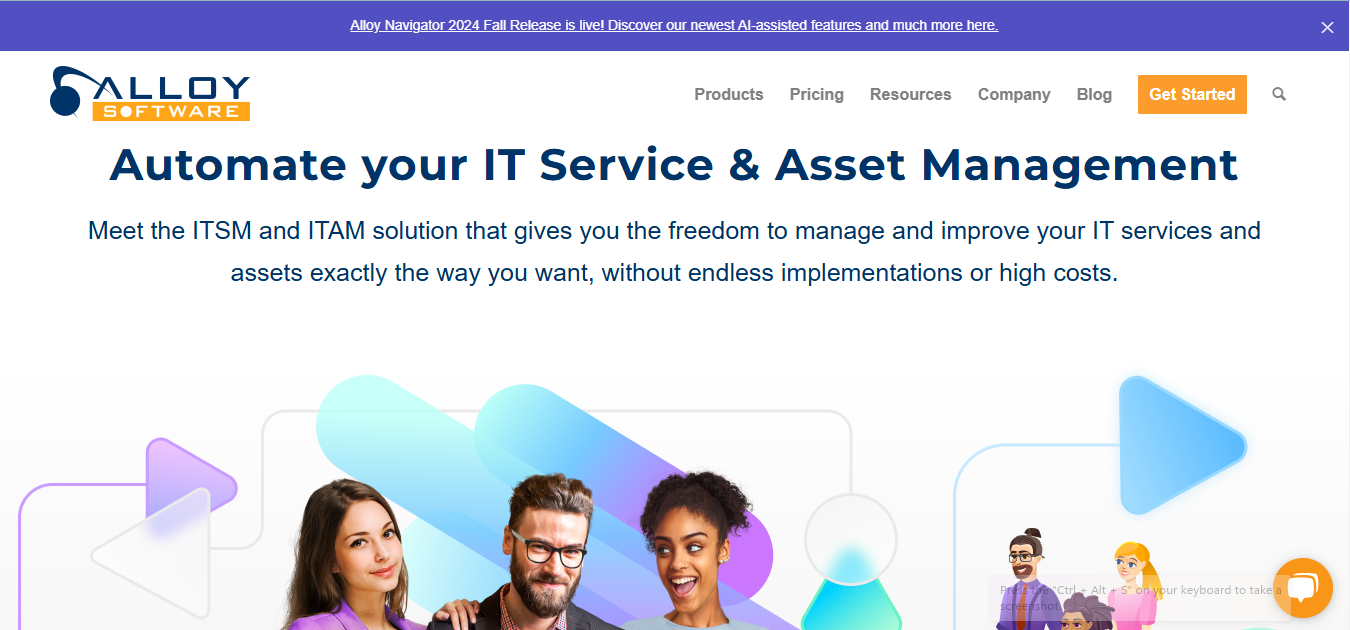
Alloy Software offers a feature-rich IT asset management solution that provides comprehensive insights into hardware and software assets. It enables organizations to track, manage, and optimize their resources effectively, ensuring compliance with licensing agreements.
Pros
-
Comprehensive asset tracking and management capabilities
-
Strong focus on compliance and license management
-
Extensive customization options
Cons
-
May have a steep learning curve for new users
-
Requires integration with existing systems for full functionality
Pricing
Alloy Software offers competitive pricing plans based on the organization's size and specific asset management needs.
-
Explorer: $19 /tech/month
-
Express: $49 /tech/month
-
Enterprice: $83 /tech/month
8. Asset Panda
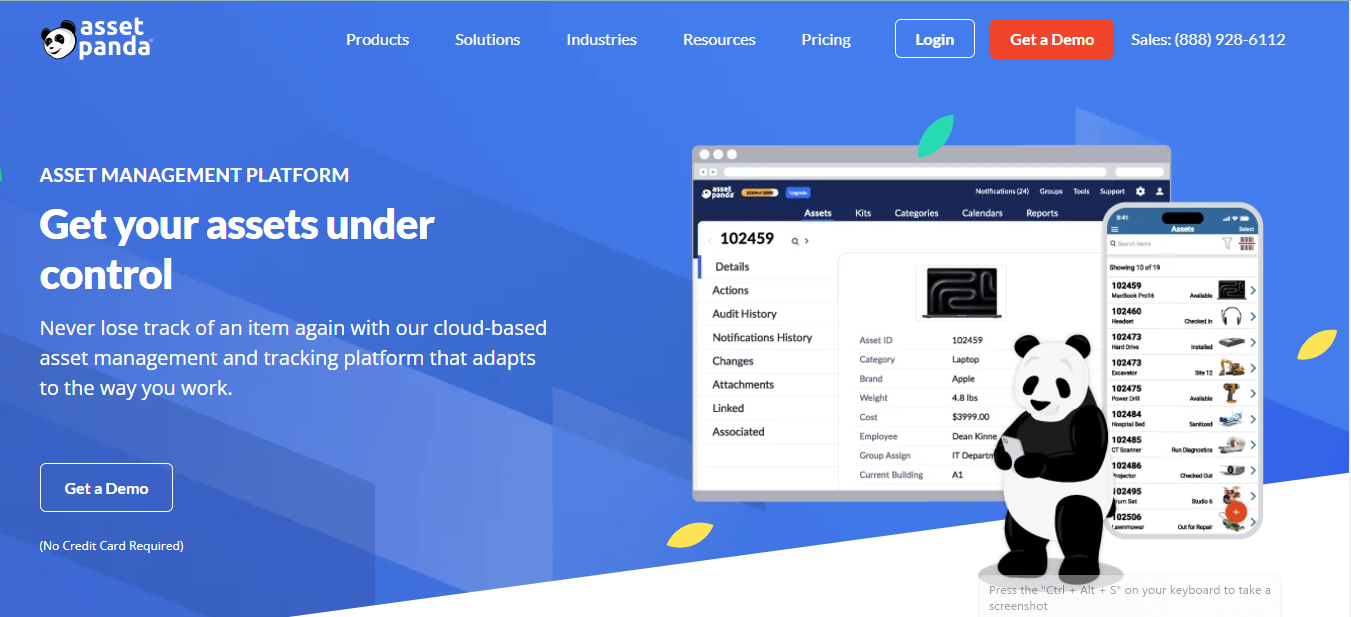
Asset Panda provides a highly customizable tracking solution that caters to organizations of all sizes. With its cloud-based platform, Asset Panda enables real-time tracking and management of hardware and software assets, offering detailed insights into asset utilization and performance.
Pros
-
Highly customizable and user-friendly platform
-
Real-time asset tracking and management
-
Cost-effective solution with flexible pricing
Cons
-
May require additional setup for complex environments
-
Limited advanced features compared to larger competitors
Pricing
Asset Panda offers flexible pricing options based on the organization's specific needs and asset management requirements.
9. Upkeep
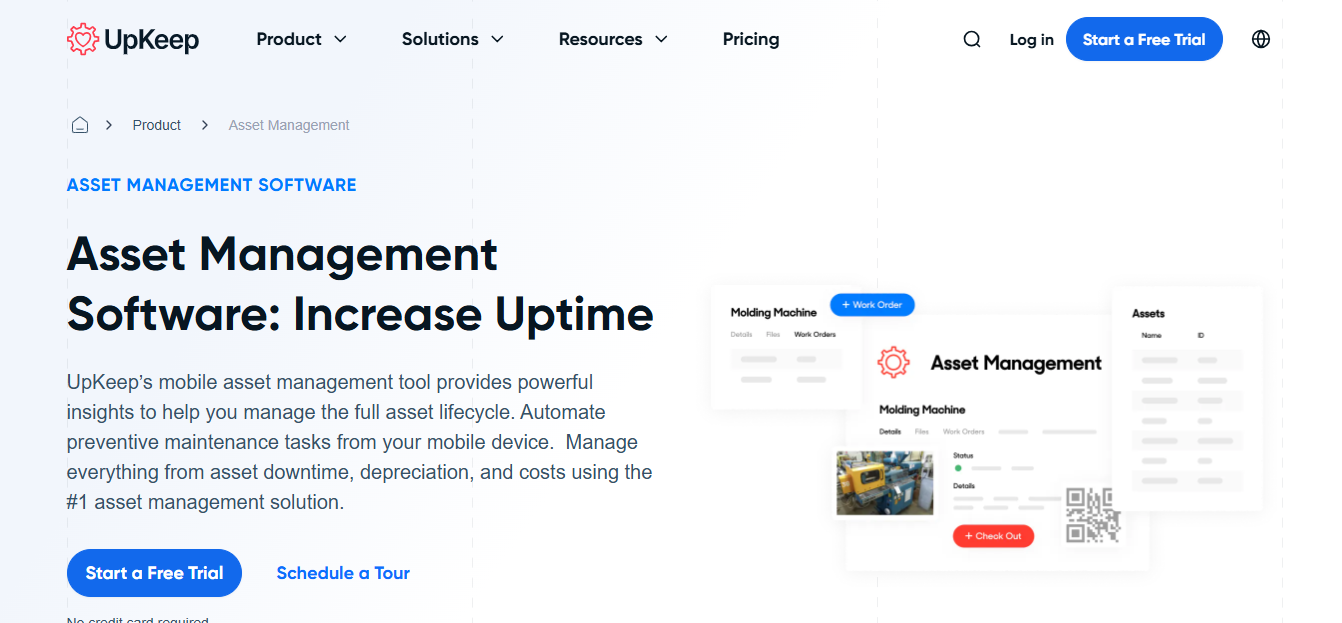
Upkeep is a powerful maintenance management platform to streamline IT operations and enhance asset performance. With its user-friendly interface, Upkeep simplifies maintenance scheduling, work order management, and asset tracking, making it an ideal choice for organizations looking to improve operational efficiency.
Pros
-
User-friendly platform with an intuitive design
-
Efficient maintenance scheduling and work order management
-
Enhances asset performance and lifespan
Cons
-
Primarily focused on maintenance management
-
May require integration with existing systems for full functionality
Pricing
Upkeep offers competitive pricing plans tailored to the organization's size and maintenance management needs.
-
Lite: $20/month per user
-
Starter: $45/month per user
-
Professional: $75/month per user
-
Business+: Custom as per requirements
How to choose an ITAM platform
Choosing the right IT asset management tool is vital for organizations to stay competitive in a fast business landscape. As businesses navigate the complexities of managing their IT asset resources, selecting a solution that aligns with their specific requirements becomes essential.
By following ITAM best practices when evaluating IT asset management tools, you can make informed decisions that support current operations and future growth:
User-friendly interface
A user-friendly interface is crucial for easy navigation and integration into existing workflows. This ease of use can significantly reduce the learning curve and enhance overall user adoption, ensuring your team can quickly adapt to the new system.
Customization options
Customization allows organizations to tailor the software to specific workflows and operational needs. Opting for alternatives that offer greater customization can lead to a more scalable solution that accommodates your organization’s growth and changing IT requirements.
Security features and software licensing
Strong security features like data encryption and access controls are crucial for protecting sensitive asset information. Switching to a different ITSM solution can improve the security of data compliance, as alternatives may adhere more closely to industry standards.
Integration capabilities
Assessing existing tools and processes before implementing a new IT asset management system can help build on current strengths and ensure a smoother transition. Look for solutions that seamlessly integrate with your existing systems to maximize efficiency.
Scalability and flexibility
Choosing a tool that offers scalability and flexibility is essential for accommodating your organization's growth. As your IT landscape evolves, the ability to adapt and expand your asset management capabilities will be crucial.
Cost-effectiveness
Finally, consider the solution's cost-effectiveness. Evaluate licensing costs and potential savings from optimized resource management to ensure the tool fits within your budget constraints while delivering the desired features and performance.
Benefits of switching from ManageEngine
.png?width=600&height=300&name=In-blog%20image%20template%20(17).png)
Switching to a ManageEngine alternative can benefit organizations in several ways. One primary advantage is improved flexibility in managing licenses and resources, as many alternatives offer more customizable and scalable solutions. Identifying unused or underutilized licenses allows organizations to optimize resources and reduce costs.
Another significant benefit of switching from ManageEngine is enhanced user experience. IBM Maximo Asset Management, for instance, offers streamlined workflows that simplify asset management for IT teams. IBM Maximo’s real-time asset usage visibility enables organizations to optimize repairs and enhance asset lifespan, contributing to better ROI.
How to transition to a new ITAM system
Transitioning to a new IT asset management system can be daunting, but with careful planning and execution, it can be achieved smoothly. Here are four effective strategies to ensure a seamless integration:
-
Engage stakeholders early: Involve key stakeholders from various departments right from the planning stage. This collaboration ensures that the tracking needs of different assets are understood, fostering team engagement and system adoption.
-
Prioritize training and support: Provide comprehensive training sessions and ongoing support to help users familiarize themselves with the new system. This reduces the learning curve and ensures everyone is comfortable with the latest processes.
-
Leverage data migration tools: Utilize advanced data migration tools to accurately transfer existing data into the new system. Ensuring data integrity during this phase is crucial for maintaining operational continuity.
-
Monitor and optimize: After the transition, continuously monitor the system’s performance and gather user feedback. This allows for timely adjustments and optimizations, ensuring the new tool delivers maximum effectiveness.
Implementing these strategies will help your organization transition seamlessly to a new IT asset management system, maximizing the benefits of enhanced asset management capabilities.
Wrapping up
The right IT asset management tool is crucial for enhancing operational efficiency and maintaining a competitive edge. While ManageEngine offers a range of robust features, several challenges, such as inconsistent support quality, complex configuration processes, and significant costs, may prompt organizations to explore alternatives.
In 2026, top alternatives like GroWrk, Zluri, SolarWinds, IBM Maximo, ServiceNow, BMC Helix, Setyl, Cherwell, BossDesk, Alloy Software, Asset Panda, and Upkeep provide innovative solutions that cater to diverse IT management needs.
Maximize your IT asset value with GroWrk. From procurement to disposal, our AI-powered platform streamlines tracking, securing, and supporting IT equipment across 150+ countries. Start with our free asset visibility feature and see how GroWrk simplifies IT operations. Talk to one of our IT specialists to discover how we can help.
Frequently asked questions
Why should I consider switching from ManageEngine to an alternative?
Consider switching from ManageEngine for enhanced flexibility, better cost management, and an improved user experience. Many alternatives provide customizable and scalable solutions that may better align with your organization's unique requirements.
What are some of the top alternatives to ManageEngine for 2026?
For 2026, notable alternatives to ManageEngine include ServiceNow, SolarWinds, and IBM Maximo, among others. These options offer various features to effectively manage IT and asset management practices.
How can GroWrk help manage distributed IT teams?
GroWrk effectively supports the management of distributed IT teams by providing complete asset visibility and advanced security features, along with extensive integrations and a global reach for equipment handling in over 150 countries. This ensures that IT teams can efficiently deploy, retrieve, store, and dispose of equipment in a streamlined manner.


